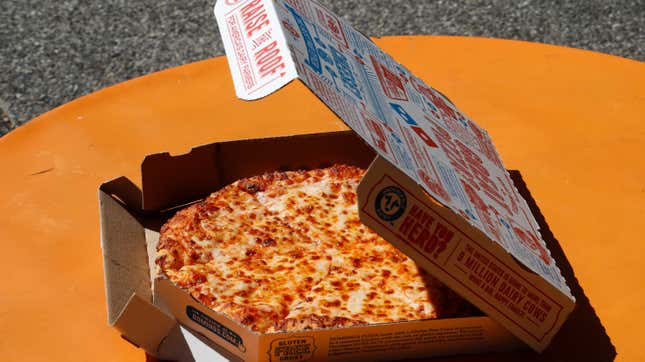
The Supreme Court declined to give Domino’s Pizza Inc. an out from a lawsuit arguing that its website is inaccessible to people with blindness, denying a petition on Monday that could have allowed the company to evade facing the plaintiff in court.
Per Bloomberg Law, a prior ruling by the U.S. Court of Appeals for the Ninth Circuit found that Guillermo Robles could proceed with a lawsuit against the pizza chain claiming that its inaccessible website violates the 1990 Americans with Disabilities Act. The appeals court also found that the ADA “mandates that places of public accommodation, like Domino’s, provide auxiliary aids and services to make visual materials available to individuals who are blind,” according to the L.A. Times.
The U.S. Supreme Court denied Domino’s petition to review that ruling, removing the last procedural obstacle before the suit could go to court. Some 600 similar lawsuits have been filed this year, and there is a lack of clarity surrounding ADA compliance and website, Bloomberg Law wrote, thus meaning this one has the potential to set a major precedent:
Courts have split over whether the ADA applies to websites. The Justice Department hasn’t issued regulations clarifying companies’ online accessibility obligations under the law.
There was some concern that if the Supreme Court took on the case, the result could be an unprecedented finding that the ADA doesn’t apply to websites. That would be a disaster for an internet that is already by and large difficult for many people living with disabilities to navigate.
The Supreme Court did not make a formal ruling and could still hear the case if lower courts disagree with the Ninth Circuit decision, but those are long odds for Domino’s.
Robles’ attorney, Joe Manning, told CNBC in a statement that the Supreme Court denial was “the right call on every level.” Manning added, “The blind and visually impaired must have access to websites and apps to fully and equally participate in modern society—something nobody disputes. This outcome furthers that critical objective for them and is a credit to our society.”
According to CNBC, attorneys for Domino’s have argued that the ADA’s mandatory accessibility standards apply to the chain’s physical locations, but not websites. However, they’ve also stated that they support making their websites accessible to people with visual disabilities or limitations but want clear federal standards in place on how to do so.
The Times, however, reported that the U.S. Chamber of Commerce and other business groups “who said they represented 500,000 restaurants and 300,000 businesses” had joined Domino’s in urging the Supreme Court to review the lower court’s decision. They griped about a possible “tsunami of litigation” and judicial imposition of a “nationwide website-accessibility mandate.”
A 2016 Pew Research Center poll showed that Americans with disabilities are roughly three times as likely as others to report never going offline, while they also are 20 percent “less likely to say they subscribe to home broadband and own a traditional computer, a smartphone or a tablet.” That seems to be partially because people with disabilities are on average older, though a smaller gap remains with younger people with disabilities. Former California Representative Tony Coelho told CNET that one major contributing factor is that companies simply haven’t keeping up with their obligations under the ADA due to a lack of enforcement, including that the DOJ discontinued a plan to issue standards in 2017.
“The internet, without reservation, is the world’s largest infrastructure,” Coelho told CNET. “That, in effect, means that [Domino’s is] covered by the ADA. The courts have ruled that... It’s a huge mistake for somebody like Domino’s to ignore the disability community. It’s a poor business decision not to comply.”
University of California, Berkeley web accessibility evangelist Lucy Greco, who is blind, told CNET that the lack of clarity surrounding regulations is an excuse for businesses to avoid their obligations.
“People are trying to find a scapegoat, and the scapegoat to them is that the law isn’t clear,” Greco said. “The law has been pretty clear.”
Lainey Feingold, a disability rights lawyer who focuses on web accessibility, concurred, telling Gizmodo earlier this year that “When you make an argument that the broadest disability civil rights law, certainly in this country, and one of the top in the world, doesn’t cover the place where everybody is interacting, that is exclusionary. This is just painful.”
“We look forward to presenting our case at the trial court,” Domino’s told reporters in a statement. “We also remain steadfast in our belief in the need for federal standards for everyone to follow in making their websites and mobile apps accessible.”